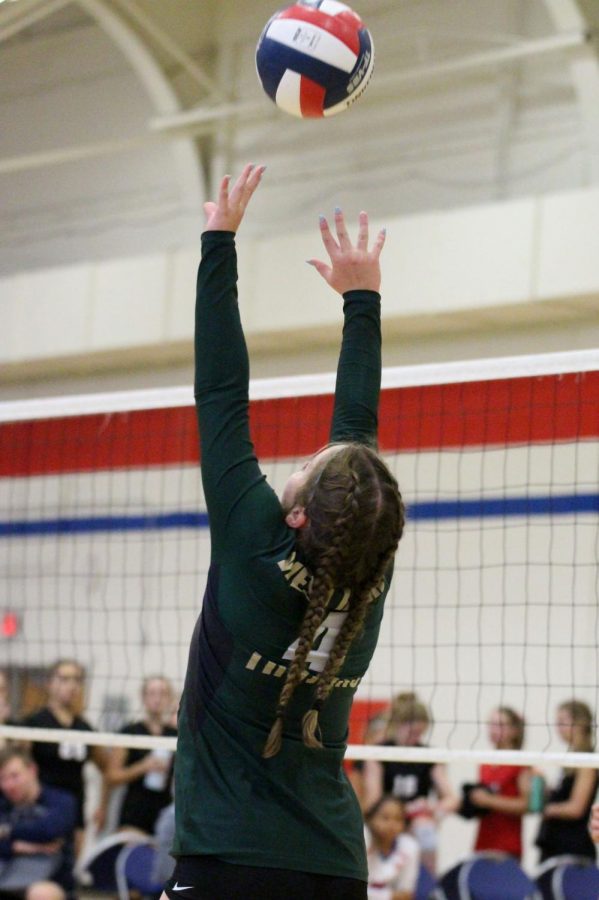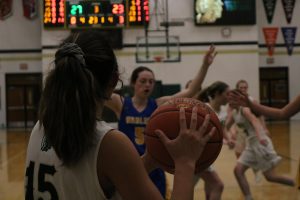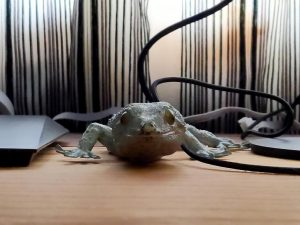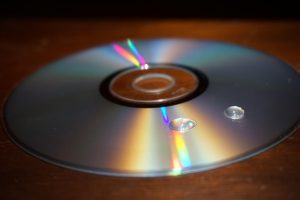The power of playing
How playing two sports has impacted Lexi Nash’s ’23 life
For many students, rushing to after school sports practice is a trimester-long commitment, but for Lexi Nash ’23, it’s a part of her schedule year-round.
Nash’s year is packed with all four seasons dedicated to either volleyball or softball and some weeks consumed by both. “In the fall is when my school volleyball season starts,” Nash said. “Then during the winter is when we start indoor practices for softball. During that time I’m also trying out for different club volleyball teams.” This year Nash wants to make it onto a more competitive volleyball team to give herself a bigger challenge. Soon after volleyball season ends, spring softball practices start and Nash says the team uses this time to “get back into things”. “After that, it’s full softball, all the time and all the way through the summer,” said Nash.
Nash is an outside hitter, defensive specialist (D/S) (left back-row) and setter for West’s freshman volleyball team. She’s also on West’s varsity softball team where she plays third base.
Nash has been playing volleyball since she was ten and joined her first softball team in seventh grade. “I know it’s a bit cheesy and aggressive but I love to win,” Nash said. She describes herself as competitive and likes that playing lets her be physically active.
“I have seen [Nash] grow into a strong player who is ready for anything.
— Sidney Nash '21
With so much time devoted to practices and games, Nash has very little time to spend on other obligations. “I have to figure out how to do all my homework in a short amount of time,” said Nash. Her older sister, Sidney Nash ’21, who has been involved with her sister’s playing since she started, has noticed this too. “[Sports] has made her have to balance her social life and school so that things get done,” Sidney said. Nash admits that she doesn’t always manage her time perfectly. “Sometimes I’m just so tired and unmotivated that I just don’t want to do something.” This “something” is normally homework and projects. However, Nash makes it work. “I just magically get it done somehow, someway,” she said.
Playing sports has taught Nash a lot, but the biggest lesson she’s learned is that she can’t control everything that happens. “I feel like that is a big part of life,” she said. “Kids, even my age, are wanting to try and force everything to be perfect and they want everything to go exactly how they envisioned,” continued Nash. She sees this mindset as an obstacle, especially when playing a sport. “Problem-solving is a skill,” Nash explained. “In a sport, not everything is in your control, but you have to maneuver around and figure out another way to adjust to your surroundings so that you can get the point and win the game.” Sidney has seen Nash bring this lesson into her personal life too. “She has learned that things are going to happen and you must push through,” Sidney said.
Playing has also taught Nash to not make excuses or give up when things get tough. “You’ve got to stay in there and you’ve got to make sure that you’re putting forth 1000% effort every single time you get on the court,” she said. “Whether it’s practice or a game or a tournament. It doesn’t matter. You have to treat everything like it’s the last time you’re going to play.”
“[Nash] has brought positive energy and power to every sport.
— Sidney Nash '21
Nash says that when games and practices do get hard, her parents are always there to motivate and encourage her. “I could have had the worst practice in my life and I just don’t want to go to practice the next day because it was so bad and my mom will tell me things that boost me up and my dad helps me think about how I can do better at the next practices.” Nash also credits her previous softball coach. “[He] was my favorite coach of all time and he pushed me to be really good at softball.”
Nash is always looking for ways to improve. Currently, she’s working on being less critical of her gameplay. “A huge goal of mine is to not get upset with myself if something doesn’t go perfect,” Nash said. “I need to work hard to better myself but not be negative towards myself, because once you’re negative . . . those thoughts in your head never go away and . . . it only makes you worse.”
Getting into a positive mindset is an important part of Nash’s last moments before a game starts. “Every time I walk onto the field or the court, I have a mental moment that takes five seconds. I just tell myself, “‘today’s a new day and I can do whatever I put my mind to.’”










